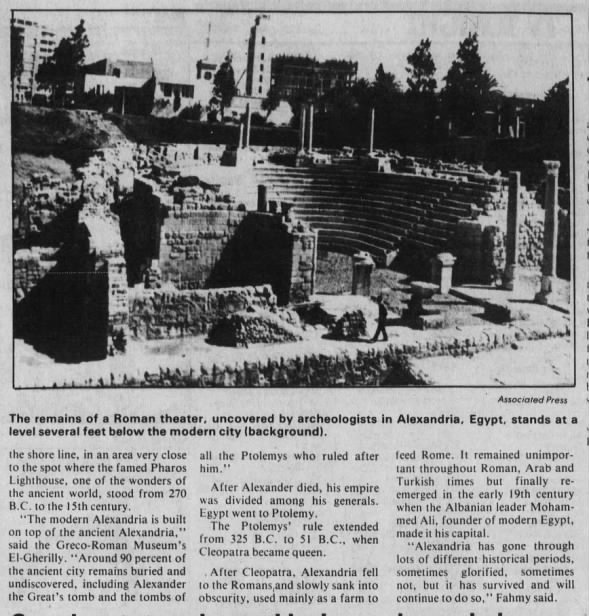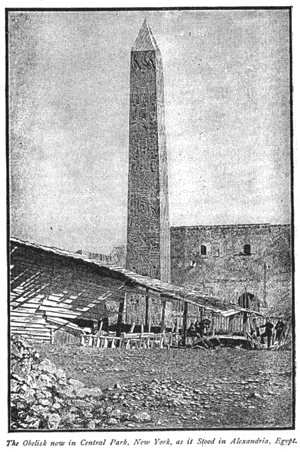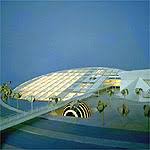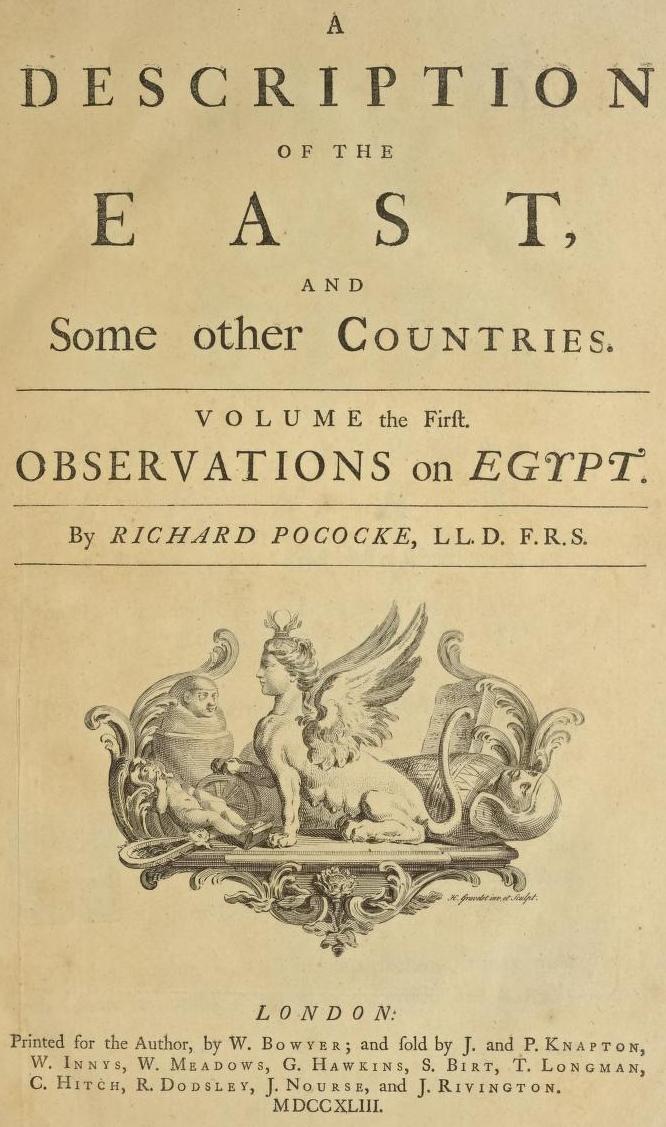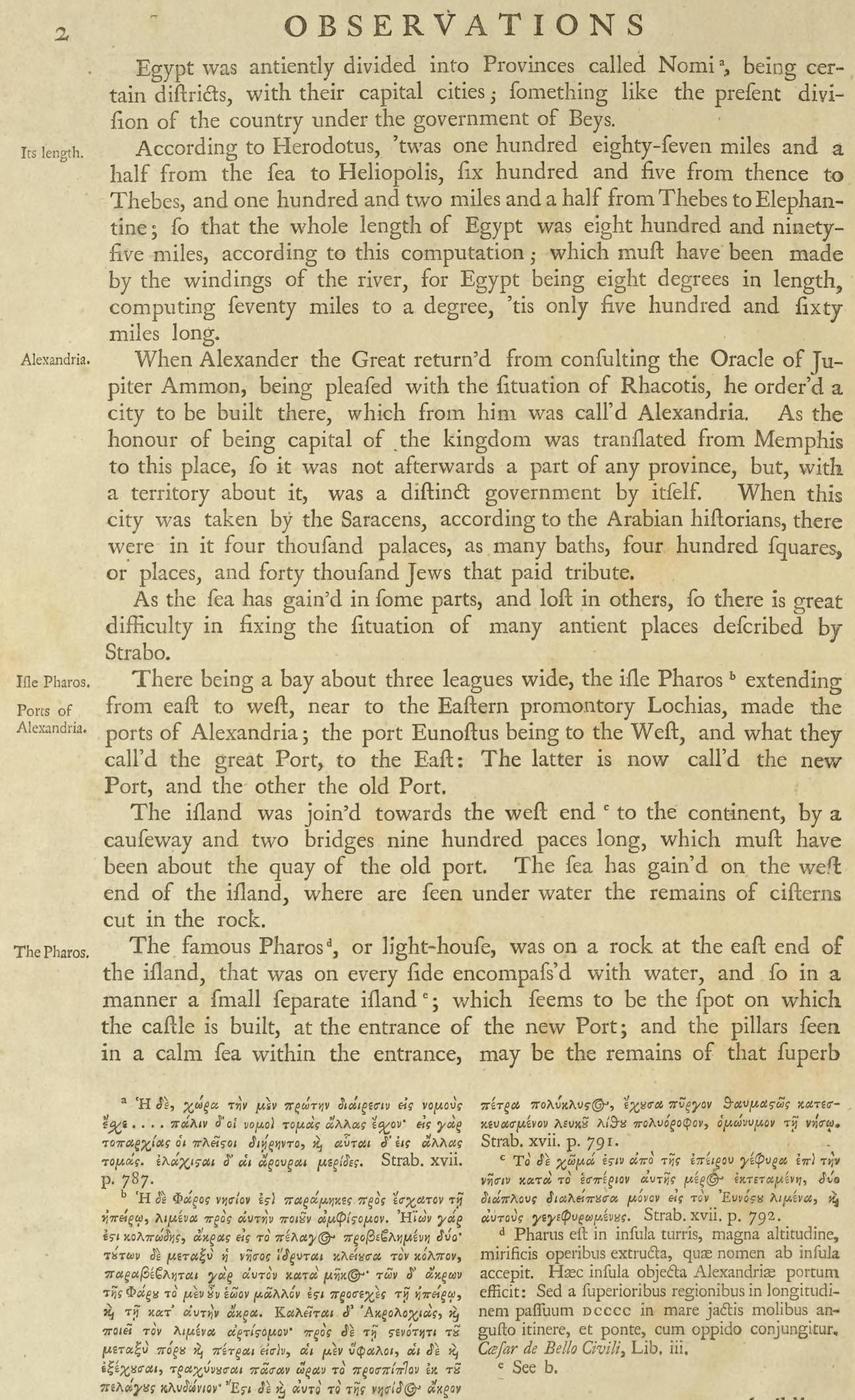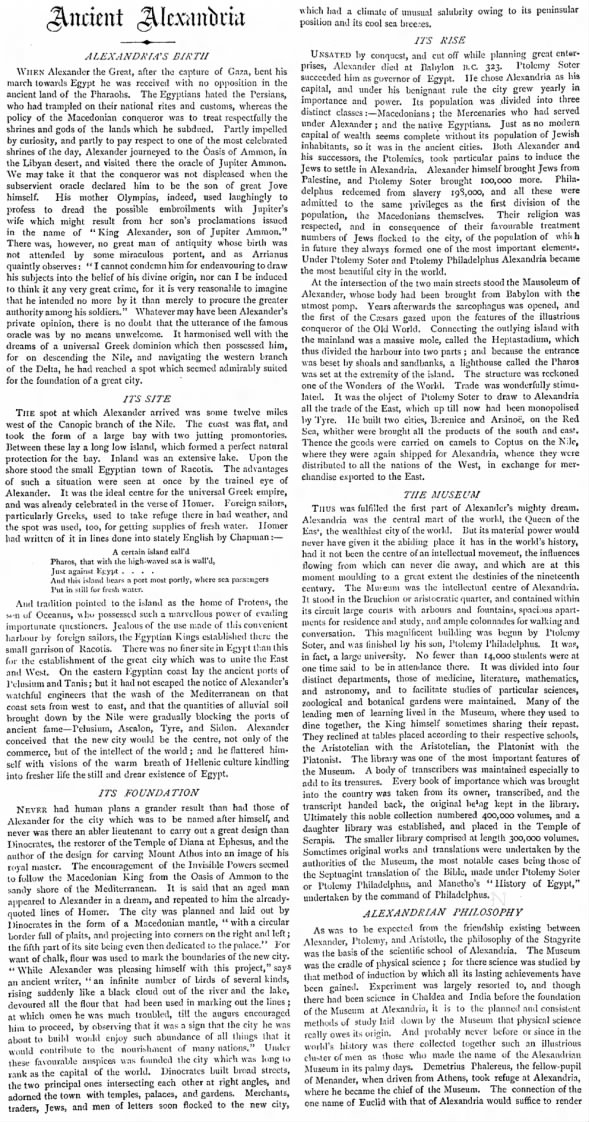|
Other Archaeological Sites / The Neolithic of the Levant (500 Page Book Online) Ancient Alexandria The Ptolemaic City (323-30 BC) Proofread and Updated April 26th 2019
A Description of the East and Some other Countries:
Egypt was anciently divided into Provinces called Nomes, being certain districts with their capital cities; something like the present division of the country under the government of the Mameluk or Mamluk Beys [By the 18th century the importance of the (Turkish) pasha was superseded by that of the Mameluk Beys even though Egypt was in actuality part of the Ottoman Empire --- See Egypt Eyalet: Later Ottoman period (1707 to 1755)].
According to Herodotus "it was one hundred eighty-seven miles and a half from the sea to Heliopolis -- six hundred and five from thence to
Thebes and one hundred and two miles and a half from Thebes to Elephantine; so that the whole length of Egypt was eight hundred and ninety-five miles according to this computation ; which must have been made by the windings of the river for Egypt being eight degrees in length,
computing seventy miles to a degree, is only five hundred and sixty
miles long.
When Alexander the Great returned from consulting the Oracle of Jupiter Ammon, being pleased with the situation of Rhacotis, he ordered a city to be built there which from him was called Alexandria. As the
honour of being capital of the kingdom was translated from Memphis to this place, so it was not afterwards a part of any province but, with
the territory about it, a distinct government by itself. When this city was taken by the Saracens, according to the Arabian historians there
were in it four thousand palaces, as many baths, four hundred squares and forty thouand Jews that paid tribute.
As the sea has gained in some parts, and lost in others, so there is great
difficulty in fixing the situation of many ancient places described by
Strabo.
There being a bay about three leagues wide, the isle Pharos extending from east to west, near to the Eastern promontory Lochias, made the
ports of Alexandria ... The famous Pharos or light-house was on a rock at the east end of
the island, that was on every side encompassed with water, and so in a
manner a small separate island ; which seems to be the spot on which
the castle is built, at the entrance of the new Port ; and the pillars seen
in a calm sea within the entrance may be the remains of that superb
building : These pillars I saw when I went out on a boat on a calm day
and could see to the bottom ...
|
